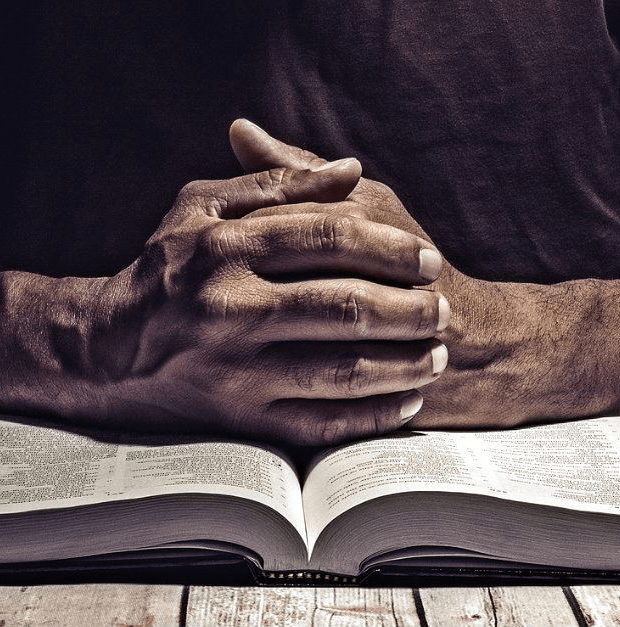St. Paul in his Letter to the Romans (10:17) described the process by which we come to believe the truth that God reveals to us: “Faith comes from what is heard, and what is heard comes through the word of Christ.”
From this, we see that although we might think that God could have simply communicated his word to each of us individually, he willed instead that we should hear that word from other human beings who received it before us, so that in hearing God’s word together, we could be built up not only in the truth, but also in unity.
As this plan of God is continually being realized, specific persons in our lives have the primary responsibility of communicating God’s word to us within our families: the pope, the bishops and priests within the family of the Church, faith leaders in our communities, and our parents within our immediate human family.
Upon hearing that divine word from them, we generally trust in the accuracy of what these first teachers in the Faith are handing on to us. How could we not, if we have no prior knowledge of religious truth?
Even as we grow in faith, we rightly continue to trust the testimony of those from whom we have received the faith, especially in the case of those teachers who are uniquely appointed in the Church to teach us.
Since the Faith is infinitely rich, we never reach the point where we no longer need to be taught. Before God, indeed, we are always spiritually children who can always continue to learn more and more.
Then, as we grow in the knowledge of God assisted by his grace, something beautiful happens: each of us comes to know the Lord in a personal way. Just as the original disciples were sent out to make disciples not of themselves but of Jesus, each new believer becomes a follower, not of the one who first taught us the Faith, but of Jesus himself.
We also attain direct access to many channels of God’s truth that are available to all, such as the Sacred Scriptures (the Bible), the writings of many great teachers of the Faith throughout the centuries, the sayings and examples of the saints.
Then there are the many documents of official teaching that come from the Church’s great Councils, and from popes writing about the questions that surfaced in their own times. The most important of these teachings are recognized as protected from error by the assistance of the Holy Spirit.
Having the possibility of direct access to these treasures will never render the personal testimony of others superfluous, because such personal contact remains always the privileged manner in which God chooses to speak to us.
A priest’s or deacon’s well-prepared homily, a bishop’s pastoral letter to his flock, which includes us, and the personal conviction and example of our family members, fellow parishioners, neighbors, and friends rightly tend to affect us more powerfully and to reach our hearts more deeply than words on a page or sounds and images transmitted electronically over the airwaves.

On the other hand, it can sometimes happen that I might hear someone making assertions about God, about the Church or the sacraments, about morality, or really about anything at all that may strike me as incompatible with what I have previously come to believe. Attempting to sift among apparently incompatible assertions is not necessarily symptomatic of any general attitude of suspicion; it is a matter of prudent discernment.
If you were being inordinately suspicious, after all, you would not have believed the testimony of the first witness who conveyed God’s truth to you. You believed it because you found the proclaimer — whether in a personal encounter or in written or electronic form — to be trustworthy and his or her word to be compelling, not only intellectually but spiritually.
If you are now questioning someone else’s word at least internally, it might not be because you are inherently suspicious, but because you do not immediately perceive how this word could be harmonious with all that you have previously heard and read.
Charity requires that we do our best to attribute good motives to the other, and due respect requires us also to acknowledge the position of someone whose vocation is to teach us in the Faith. But the allegiance of our intellect and will is due in the end not to our neighbor, and not even to our bishop or pope, but to God’s revelation, which we hear in unity with our neighbor and properly assisted by those teachers.
If we experience the discomfort of disagreements in the process, we may sometimes come to understand that God is using the other person’s perspective to broaden our own understanding. Less frequently, we may even remain convinced that the other person has misunderstood or poorly expressed a teaching of Christ that we are blessed to have learned previously.
Such discernment requires prayer and a humble readiness to surrender our own pet ideas in the event that we need to be corrected. But as long as we preserve charity toward others and trust in the Holy Spirit, God will always do his part to lead us to the fullness of the truth that builds us up in unity.
Msgr. Michael Magee
(Living City, USA)




